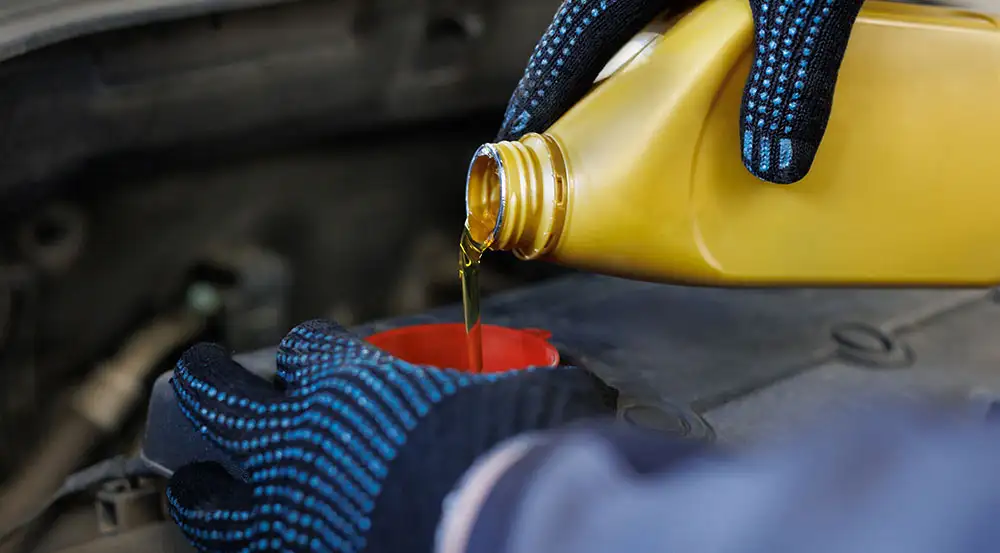Regarding vehicle maintenance, regular oil changes are critical for ensuring your car’s engine runs smoothly and efficiently. The hydraulic fluid serves as the lifeblood of your engine, lubricating the moving parts, reducing heat, and preventing wear and tear. But how do you know when it’s time to change hydraulic fluid? Ignoring the signs that your lubricant needs changing can lead to decreased performance, costly repairs, or even engine failure.
At Mission Auto Repair, we specialize in providing top-notch vehicle maintenance services, including expert oil changes to ensure your engine runs smoothly and efficiently. This post highlights the top indicators that signal it’s time to schedule an oil change.
Why Oil Changes Matter
Regular oil changes help remove dirt, debris, and sludge that accumulate over time. Clean fluid effectively lubricates the engine, reducing friction, enhancing performance, and increasing fuel efficiency. With timely lubricant changes, you can extend the lifespan of your engine and avoid costly repairs down the road.
Top Signs Your Vehicle Needs an Oil Change
Dashboard Warning Light
Oil Light Indicator: The most obvious sign is the oil change or check engine light on your dashboard. The oil light typically illuminates when there is an issue with the engine fluid level, pressure, or quality. Ignoring this can lead to severe engine problems.
Check Engine Light: While it may signal various issues, a check engine light could indicate that your lubricant needs attention. Don’t wait too long to get it checked by a professional mechanic.
Engine Noise and Knocking
No one enjoys hearing strange sounds coming from their vehicle, particularly from the engine. Oil lubricates the engine’s moving parts, preventing them from grinding against each other. A minor issue like an overdue lubricant change could be the cause of a knocking sound coming from your motor. You might hear a knocking sound when the automobile is moving because old or thin lubricant doesn’t perform its function well. Low-quality or low-level hydraulic fluid means insufficient lubrication, leading to friction and potentially costly engine damage. After changing the lubricant, this should go away.
Exhaust Smoke
While some vapor from the exhaust is normal, noticeable exhaust smoke can indicate an issue with your engine fluid. This smoke may signify an oil leak, which should be addressed immediately to prevent further issues.
Dark and Dirty Oil
Fresh oil is typically amber and translucent, but over time, it darkens as it accumulates debris and contaminants. Checking the color is simple: pull out the dipstick and observe the color and texture of the liquid. If it’s thick, gritty, or dark, it’s likely time for a lubricant change.
Poor Fuel Economy
Old grease becomes thicker and sludgy, making the engine work harder to perform at optimal levels. This extra effort requires more fuel, so if you notice your fuel mileage decreasing without any change in driving habits, it could be time for a lubricant change.
Oil Smell Inside the Car
If you smell oil inside your vehicle, it could signal a leak or an issue with the engine. In severe cases, this smell might indicate that it is burning. Leaking fluid in combination with engine heat can lead to hazardous situations, so it’s best to visit a mechanic if you detect any unusual smells.
Excessive Mileage Since the Last Oil Change
Every vehicle has manufacturer-recommended intervals for hydraulic fluid changes. Generally, it’s advised to change the hydraulic fluid every 3,000 to 5,000 miles. However, many modern vehicles can go longer between lubricant changes, sometimes up to 10,000 miles with synthetic oil. Review your vehicle’s manual or consult a mechanic if you’re unsure of your car’s recommended interval.
Low Oil Level
It’s time to add or change your oil if it’s low. A leak or an issue with oil consumption could be indicated by persistently low lubricant levels, which could result in overheating and engine wear. It’s simple to check the hydraulic fluid level with the dipstick and add extra if necessary, but keep in mind that a persistently low level indicates a more serious problem.
Shaking or Vibrating While Idling
While many issues can cause vibrations, old or dirty grease might make your car shake when idle. When oil thickens due to debris, it may not flow as smoothly, leading to engine vibrations. If your vehicle is vibrating at idle and it’s been a while since the last fluid change, this could be a reason to schedule one.
Observing these signs ensures that your engine performs efficiently and lasts longer. Regular oil changes are essential to avoid major mechanical issues and costly repairs.
Schedule Your Oil Change Today with Mission Auto Repair Shop
If you’re noticing any of these signs, it’s time for an oil change. Contact us at Mission Auto Repair Shop today to keep your engine running at its best and extend your vehicle’s lifespan. Our expert team is ready to help you maintain a smooth, safe, and efficient drive.
Frequently Asked Questions (FAQs)
Q: How often should I change my vehicle’s oil?
A: The kind of oil you use and your car will determine this. The lubricant in most cars needs to be changed every 3,000 to 5,000 miles. Synthetic fluid, however, can increase this distance to 7,500 or even 10,000 miles. For detailed advice, consult your vehicle’s handbook.
Q: What happens if I don’t change my oil regularly?
A: Failing to change your oil regularly can lead to sludge buildup, poor engine performance, decreased fuel economy, and, in severe cases, engine failure. Timely lubricant changes prevent costly repairs and keep your engine in good shape.
Q: Can I change my vehicle’s oil myself?
A: Yes, changing your oil can be a DIY project if you have the right tools and knowledge. However, many prefer to have it done by professionals to ensure proper disposal of old grease and handling of all engine components.
Q: Why is my oil dark after only a short period?
A: Dark grease isn’t necessarily a bad sign, as oil naturally darkens as it absorbs heat and contaminants. However, if it’s dark, thick, or gritty shortly after a change, it might be time to check with a mechanic for any underlying issues.
Q: What type of oil should I use for my vehicle?
A: The type of oil depends on your vehicle and driving conditions. Your car’s manual will specify the recommended hydraulic fluid type, whether conventional, synthetic, or a blend. You can also consult a mechanic for advice tailored to your car and driving habits.


